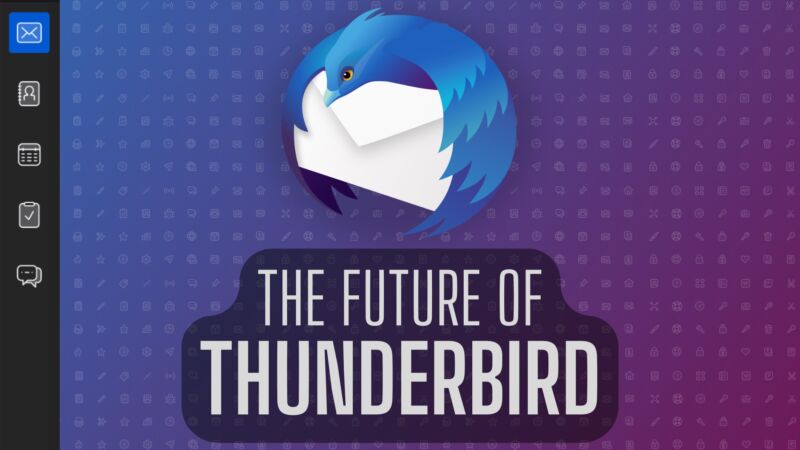
“Why does Thunderbird look so old?”
That’s one of the most frequently asked questions about Thunderbird, according to Thunderbird Project Design Manager Alessandro Castellani (along with “Is Thunderbird dead?”). And it’s one he seeks to answer definitively in a new blog post about Thunderbird’s planned 2023 release, codenamed Supernova.
Among other features, the Supernova release will include an overhaul of Thunderbird’s user interface. Castellani didn’t share screenshots, but he indicated that the new UI would be “simple and clean” and targeted mostly at new users. For “veteran users,” the interface will also be “flexible and adaptable” so that people who prefer the way Thunderbird looks now can “maintain that familiarity they love.”
Supernova will also include several other big changes, including a redesigned calendar and support for Firefox Sync.
Beyond news about the redesign, the blog post is worth a read if you’re curious about what the team is doing to battle the software’s technical debt or if you want to know why it seems like the app’s development moves so slowly (the developers spend a lot of their time simply keeping up with upstream changes from Firefox since the browser still serves as the foundation for Thunderbird’s email rendering). The post is also helpful if you need a refresher on the long and complicated relationship between Thunderbird and Mozilla.
Thunderbird used to be maintained by Mozilla alongside the Firefox browser, but in the modern era, it hasn’t always been clear who’s responsible for it. Mozilla executives had wanted to spin Thunderbird off as early as 2007, and it moved to a more community-driven development model in 2012.
That decision, according to Castellani, was “a blessing and a curse” that put Thunderbird in the position it’s in today. Community contributions to Thunderbird kept the project alive, but a lack of centralized oversight “resulted in an inconsistent user interface without a coherent user experience” and led to long stretches where the app wasn’t being updated at all.
Today, Thunderbird development is still partially driven by community developers, and the project is heavily reliant on user donations. But it’s also somewhat back in-house at Mozilla via “a growing group of paid employees” at a wholly owned Mozilla subsidiary called MZLA Technologies. It’s those employees who are currently defining Thunderbird’s roadmap, working to help it shed its technical debt, and hoping to expand its user base with a new Android client based on the K-9 Mail app.
The redesigned Thunderbird user interface is currently slated for Thunderbird 115, which is due to be released in July.
